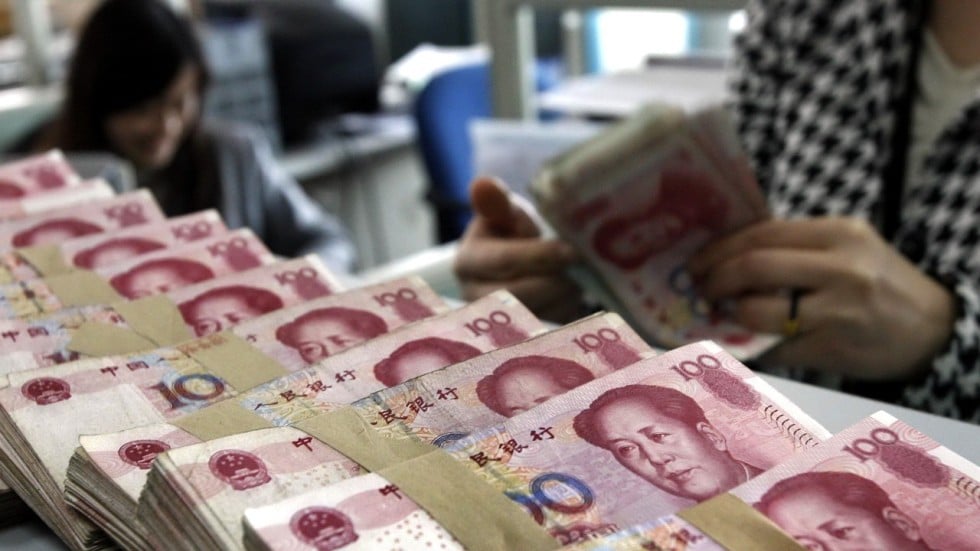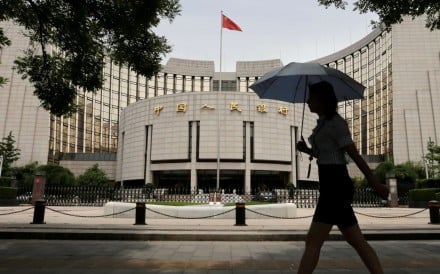Revealed: the sneaky ways Chinese are moving money across the border
Foreign currency regulator SAFE sheds light on exodus of cash
PUBLISHED : Monday, 29 May, 2017


China’s foreign currency regulator has shed light on the mass underground exodus of cash from the country, coming up with a list of 10 top cases of individuals and firms moving money covertly over the border.
Analysts said that despite tighter scrutiny, the outflows were likely to remain strong for years to come, with companies and individuals looking for better investment opportunities while safeguarding their money against a weakening Chinese economy and a falling yuan currency.
In its list, the State Administration of Foreign Exchange (SAFE) named and shamed five companies, accusing them of forging contracts or invoices to remit a combined US$226 million offshore since 2015.
Among the alleged offenders was Ningbo Big Fortune International Trade, which “colluded with several overseas companies”, “forged trade contracts”, “inflated prices to five to 20 times market prices”, and moved a total of US$119 million overseas between August and September 2015, the administration said.
The company was fined 22.8 million yuan (US$3.3 million) for “seriously disturbing foreign exchange market order”, the regulator said.
Fake invoices, false trade records and invalid customs forms were among the most common ways for money to be moved illegally.
The regulator said four companies, Shanghai Daxinhua Logistic, information technology firm Hangzhou Zhiyu, Harbin Goldenway Wooden Products and Daming Electron, used combinations of these methods to transfer a total of US$107 million overseas illegally in between 2015 and 2016.
Individuals also used creative methods to get their money overseas, the regulator said, with five people being fined for moving money through various means to foreign accounts.
In one case, a Guangdong resident used the US$50,000 annual foreign exchange purchase quotas of 84 people to remit US$4.35 million to his own accounts in Australia and Hong Kong from December 2015 to January this year. The person was fined 1 million yuan, SAFE said.
An individual from Shandong province siphoned US$2 million out of China between February and December 2015 by putting money into 41 bank accounts of his workers and ordering them to transfer the money overseas through online banking.
Another two people, like the others identified by the regulator only by their family names, used multiple accounts at underground banks from which they made a series of transfers overseas, each one below the official cap. In one further case an individual used as many as 31 separate bank accounts to move money to Hong Kong.
All the cases show how people are defying official efforts to stop the depletion of the country’s foreign exchange reserves.
Beijing has stepped up measures to stem capital outflows since the yuan skidded to eight-year lows and foreign reserves slumped to around US$3 trillion last year. Regulators have discouraged companies from non-core outbound investment and tightened checks on citizens exchanging foreign currency.
From July 1, it will also tighten rules for banks to report cross-border customer transactions to curb money laundering and funding of terrorism.
But Li Youhuan, from the Guangdong Academy of Social Sciences, said capital outflow was undeterred by stricter scrutiny “given the robust business I’ve seen by underground banks”.
“Measures to hold back company transactions definitely cannot work,” Li said.
“Such demand cannot be eliminated as long as China opens its door to trade and exchange with other countries.”
Renmin University finance professor Zhao Xijun said that while no financial institutions were singled out by the regulator, their role in abetting the capital exodus should not be ignored.
“SAFE is sending a message that punishment will continue,” Zhao said. “Financial institutions will be held responsible if they collude.”
However, there are doubts about how long the mainland can continue to clamp down at the cost of normal trade and business activities.
Andrew Collier, managing director of Oriental Capital Research, said: “They can’t keep this up permanently because too many companies need to buy [other] companies or conduct external transactions.
“I expect China will need to depreciate the currency in 2018 to reduce the pressure on capital flows.”
Fears of large-scale capital outflows were renewed after Moody’s downgraded China’s long-term local currency and foreign currency issuer ratings last week on debt concerns and amid expectations the US Federal Reserve would raise interest rates soon, driving the greenback up.
Here are some of the most popular ways to get money out:
1) Forging transport invoices and shipping contracts
2) Forging trade records
3) Re-using invoices
4) Faking transaction amounts for customs
5) Putting money in other people’s accounts and asking them to transfer money in instalments
6) Going through underground banks
7) Using invalid custom clearance forms
8) Creating false reasons to explain to banks the need for transfers
No comments:
Post a Comment
Comments always welcome!